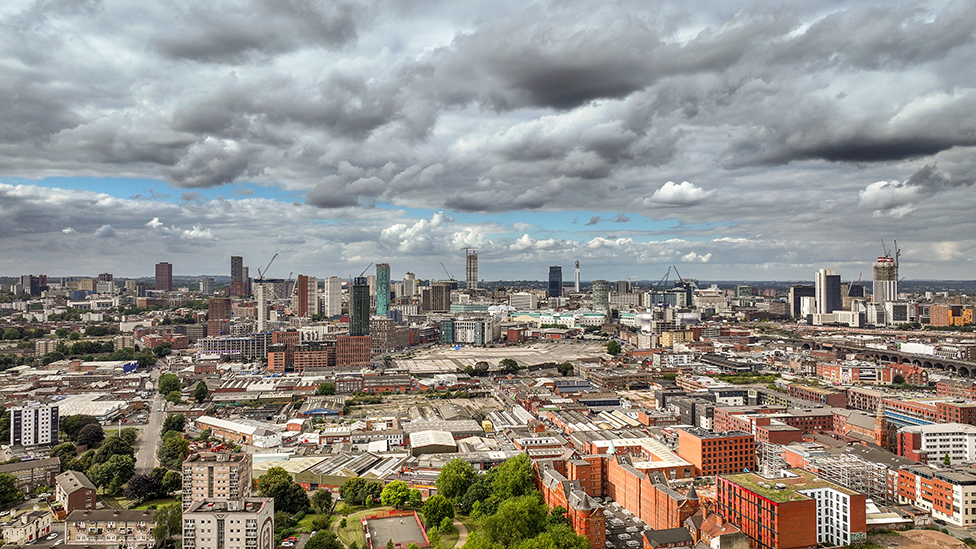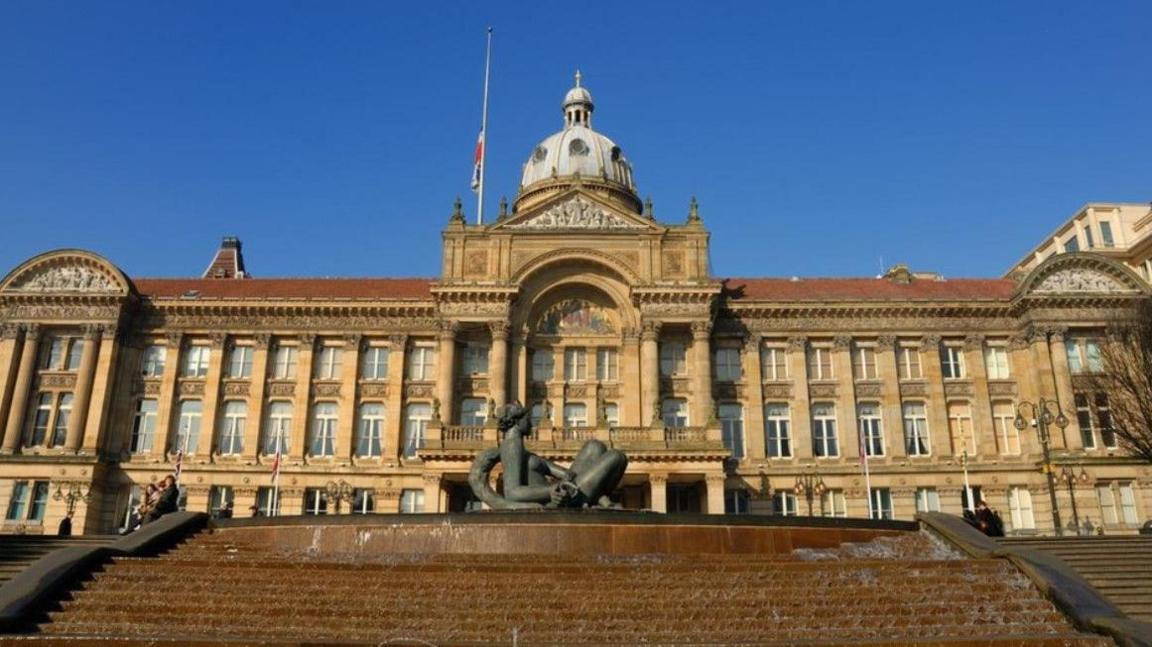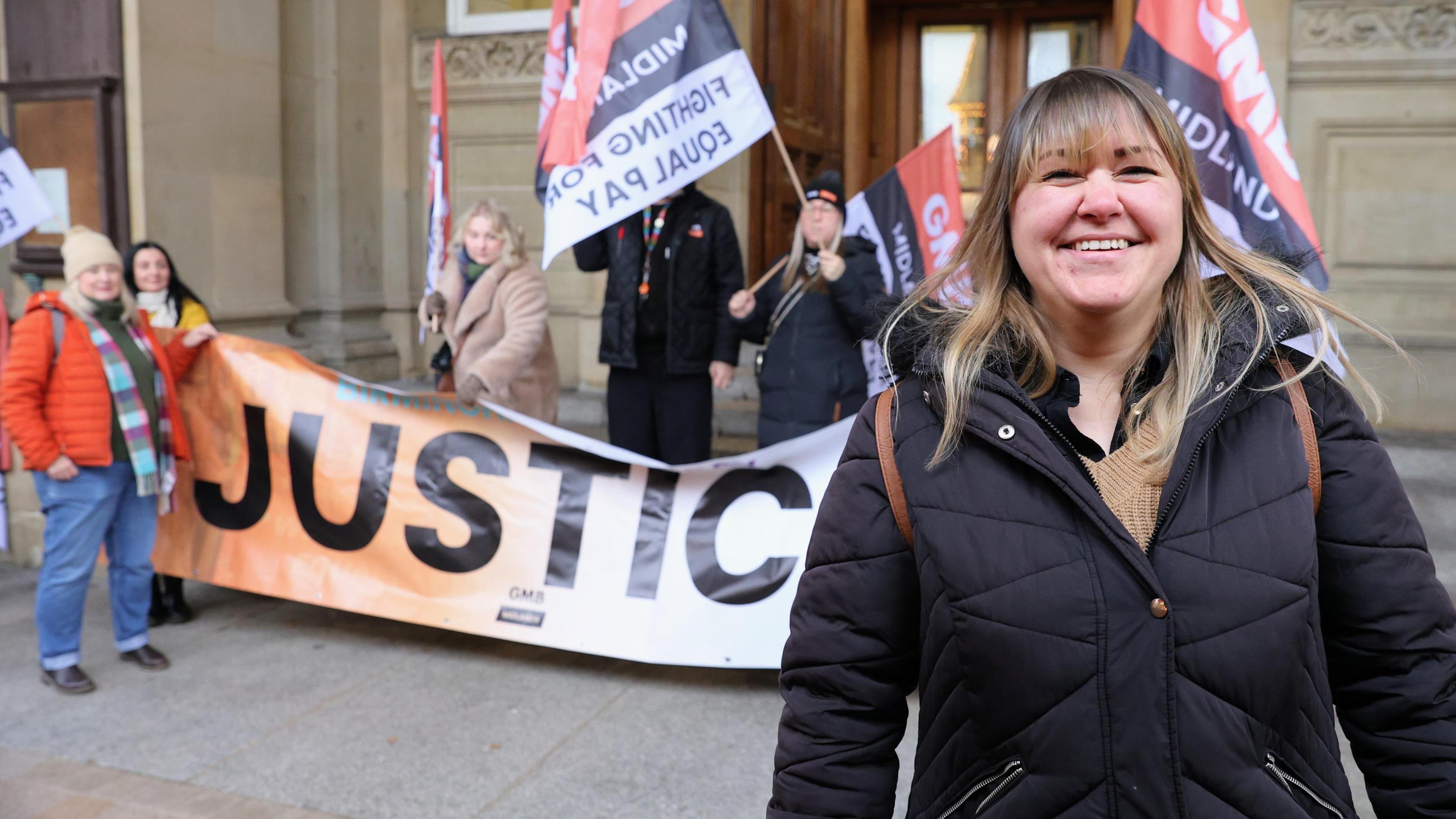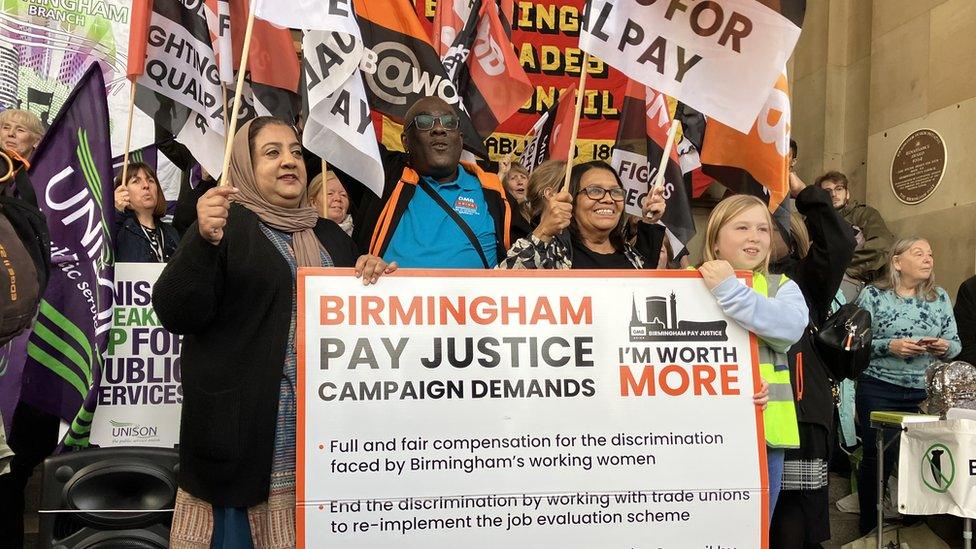Council has highest debt among UK local authorities

The city council said given the number of people living in Birmingham, a "more suitable comparison" would be debt per head of population
- Published
Birmingham City Council continues to have the highest debt of any local authority in the UK, despite a 4% cut in the past year, new figures show.
It was down to £3.35bn at the end of the 2024-25 financial year, while overall, councils in the UK added £7.8bn to their growing debt pile, a BBC investigation found.
UK councils owe a combined £122.2bn to lenders, equivalent to £1,791 per resident as of April, a 7% rise, analysis of data from the Ministry of Housing, Communities and Local Government (MHCLG) shows.
The Birmingham authority said given the size of the city, a "more suitable comparison" than overall debt would be debt per head of population, which would put it 49th among councils.
Although its loan debt of £3.35bn was the highest among UK local authorities, the council is also the largest in the country.
By way of comparison, six of the top 10 councils to see the largest overall rise in debt over the past year were London boroughs.
Birmingham City Council said it had a debt per head of population of £2,875 and that its cash balance at 31 March was £219.4m, meaning a net debt of £3.13bn at the time.

The local authority said a large capital investment programme was planned for its council housing stock, which would initially be financed by borrowing
It added the costs of servicing its overall debt, including interest payments and repayment of debt, were built into the council's medium-term financial plans.
"At this stage there is no indication that a s114 will need to be issued as a result of the debt levels as current budget projections are within available resources," it said.
The council added that the Section 114 issued in 2023 - essentially declaring itself bankrupt - was not triggered by its debt level.
Rather it signified an inability to balance the budget at the time.
One of the main factors was equal pay claims, with the council facing a bill of £760m to settle those, which were mainly brought by staff working in traditionally female-dominated jobs.
The local authority was also counting the cost of a huge overspend on an IT project.
In December, Birmingham City Council, Unison and the GMB unions agreed a deal to settle equal pay claims, meaning 6,000 staff with the authority would receive payouts.
Housing stock
The local authority said its gross debt as of the beginning of April was made up of £1.27bn for the Housing Revenue Account - covering council housing - and £2,08bn relating to its General Fund.
It said it planned to keep borrowing on the General Fund to a minimum and expected to see that fall over the the next few years.
However, it said there was a large capital investment programme planned for its housing stock, to improve conditions for tenants, and added this would be initially financed by borrowing. It said the business plan showed this to be affordable.
Get in touch
Tell us which stories we should cover in Birmingham and the Black Country
Follow BBC Birmingham on BBC Sounds, Facebook, external, X, external and Instagram, external.
Related topics
- Published29 December 2024

- Published10 December 2024

- Published10 October 2023
